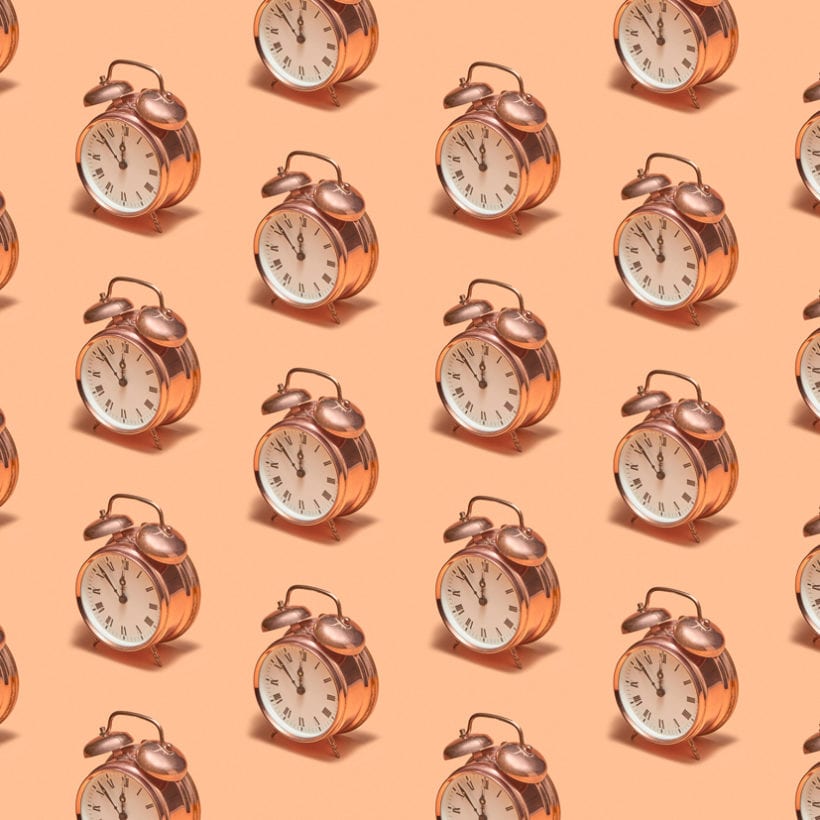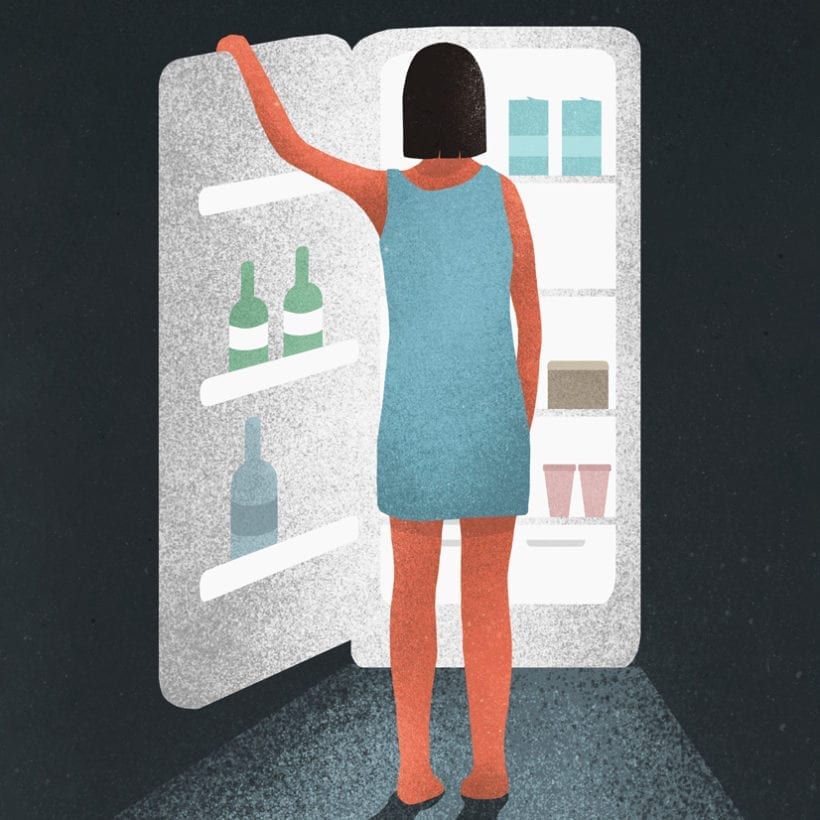After hours of back-to-back Zoom calls, you glance at the time, only to be shocked it’s well past 6 p.m. Or, by the time you shuttle the kiddos to school, commute to work, pick them up for their activities, and get everyone bathed and fed, it’s 9 p.m. For many professionals and working parents, 24 hours in a day doesn’t feel like enough to balance your responsibilities. Rather than collecting those recommended seven to nine hours of sleep, do you crawl into bed only to binge-watch Netflix or TikToks? This is called ‘revenge bedtime procrastination, and hey, it’s okay sometimes. But making it a habit can be potentially damaging to your health. Here, we spoke with experts about what this is, why it matters, and how to fight it.
What is revenge bedtime procrastination?
To put it simply, when people are really busy, either working long hours or caring for children all day, they end up without time to wind down at night, explains reiki master Serena Poon. This results in two issues: you aren’t physically tired, and you end up stimulating yourself with screens, making it harder to feel sleepy.

“Taking time each day to release tension and to partake in soul-nourishing activities is an important part of getting restorative sleep. Realizing that they need these activities, many people stay awake late to get in some extra ‘me time’ at the end of the day,” Poon continues. “The problem is that if you stay up so late that it impacts either your ability to fall asleep or the quality of your sleep, you may be triggering harmful health effects. These destructive sleep cycles tend to become habits if perpetuated beyond a few instances.”
Why is bedtime revenge bad for our health?
Though many people hyperfocus on eating well and exercising, sleep is critical to feeling and being well. When we suffer from sleep deprivation, it fundamentally changes our brains since we aren’t giving it the time it needs to rest and rejuvenate, explains psychologist Dr. Yvonne Thomas, Ph.D. “Bedtime revenge can adversely affect your ability to think, concentrate, focus and make decisions,” she says. “It can also impair your emotional state, causing you to be irritable, cranky, impatient, stressed, moody and depressed.”
If you make bedtime revenge a habit, it can become even more problematic and damaging. Over time, it can make you more susceptible to diabetes, obesity, heart disease, and a weaker immune system, Dr. Thomas adds.
How can we combat revenge bedtime procrastination?
To reverse the negative impact of sleeplessness, consider making lifestyle changes. These will help you combat bedtime revenge and create a more balanced routine that leads to deeper, healthier sleep.
Prioritize self-care during the day.
While many people think about ‘self-care’ as taking a bath or having an hour to yourself to recharge, it can really be anything. And what’s great about ‘me time’ is that you can decide what it is, what you need, and — most importantly — how to make it make sense with your schedule. However, as Dr. Thomas reminds, it does require a conscious effort to block your calendar. Maybe it’s 30 minutes in the afternoon where you take a walk. Or a simple ten minutes to step away from your desk, go outside in the fresh air, and listen to a podcast. Whatever will give you the mindfulness you need, make it a priority.

“By doing this, you will be less likely to feel resentful, upset, or stressed that you never had time to do those activities you wanted to during the day,” Dr. Thomas says. “As a result, you will feel less in need of staying up late to compensate for doing what you never got to enjoy during typical waking hours.”
Think about your list of responsibilities.
Sure, there are some necessities we all have in our professional and personal lives. But if you are carrying the weight of everyone and everything on your shoulders, it’s no surprise you feel like you can only focus on yourself at bedtime. To combat this, Poon suggests giving your list of responsibilities a long, hard look. There are likely some items that you could shift to be more reasonable. “It might seem impossible, but I encourage you to track where you are spending your time for a few days,” she continues. “After, review your schedule and consider where you might be able to create boundaries at work and at life.”
These questions should help you pinpoint where you can change:
- Are there responsibilities at work or home that you can delegate?
- Perhaps if you are making dinner every night, you could simplify the menu or ask your partner to help?
- Where can you stack activities to achieve two things at once? Maybe you can take some of your meetings while walking around the block.
“Try to carve out ideally an hour, but at least a half-hour of wind-down time at the end of every day to allow yourself to melt into a restful sleep. Keep in mind that sleep impacts your health, emotions and productivity, so you must make it a priority,” she adds.
Resist the urge to scroll or to binge.
When you’re having your bedtime revenge, you likely are seeking ways to shut your brain off after it’s been on overdrive all day. Naturally, most people turn to a mindless television show or scroll through their social media timelines. Though it may feel second nature, it’s creating the opposite impact you’re looking for: it’s keeping you awake. The blue light from your phone and screens impacts your sleep cycle, making it more difficult to grow tired. “These activities can feel as though they are relaxing, but they are actually further stimulating your brain,” Poon says. “If you are going to stay up later, try reading a book or doing something tactile like building a puzzle or craft project.”
And better yet: create a bedtime ritual that signals to your mind that it’s time to rest. This could be washing your face and teeth, listening to a meditation, lightening a candle, or even a deep breathing exercise. Whatever makes you feel sleepy, lean into it. And let the revenge go. You got this.
We only recommend products we have independently researched, tested, and loved. If you purchase a product found through our links, Sunday Edit may earn an affiliate commission.








